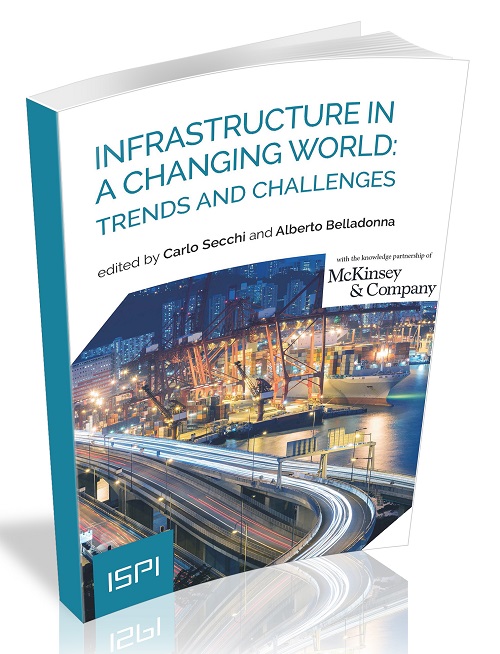In a world on the brink of a global recession caused by the COVID-19 global pandemic, the infrastructure efforts of today and tomorrow are more crucial than ever.
For one, they are an indispensable countercyclical tool to mitigate the negative effects of the economic paralysis.
But they also constitute a pivotal component for a country’s development, raising its competitiveness in the long term. That is why infrastructure will continue to play a critical role even when the pandemic crisis has been tamed.
Rapid demographic growth, increasing urbanization, especially in developing countries, coupled with the ounting challenge posed by climate change, are trends that are not going to disappear with the virus.
How to cope with these global, long-term trends? How to finance the increasing need for infrastructure? Which major international actors will take the lead? And what role will technology play in shaping the future of infrastructure?
ISPI. L’ISPI è un think tank indipendente dedicato allo studio delle dinamiche politiche ed economiche internazionali fondato nel 1934. È l’unico istituto italiano – e tra i pochissimi in Europa – ad affiancare all’attività di ricerca un significativo impegno nella formazione, nella convegnistica e nell’analisi dei rischi e delle opportunità a livello mondiale per le imprese e le istituzioni. L’ISPI privilegia un approccio interdisciplinare e “policy-oriented” reso possibile da un team di ricerca di oltre 50 analisti e può inoltre contare su un network internazionale di 70 università, think tank e centri di ricerca. Nella classifica redatta dall’Università di Pennsylvania, l’ISPI si è posizionato al primo posto al mondo tra i “Think Tank to Watch” nel 2020.
DATI BIBLIOGRAFICI
A cura di: Carlo Secchi, Alberto Belladonna
Editore: Ledizioni
Collana: Pubblicazioni ISPI
Pubblicato in: giugno 2020
Lingua: inglese
Formato: brossura 216 p. – ePub
ISBN cartaceo: 9788855262682
ISBN ePub: 9788855262699
Prezzo cartaceo: 12 €
Prezzo ePub: 6,99 €














Recensioni
Ancora non ci sono recensioni.